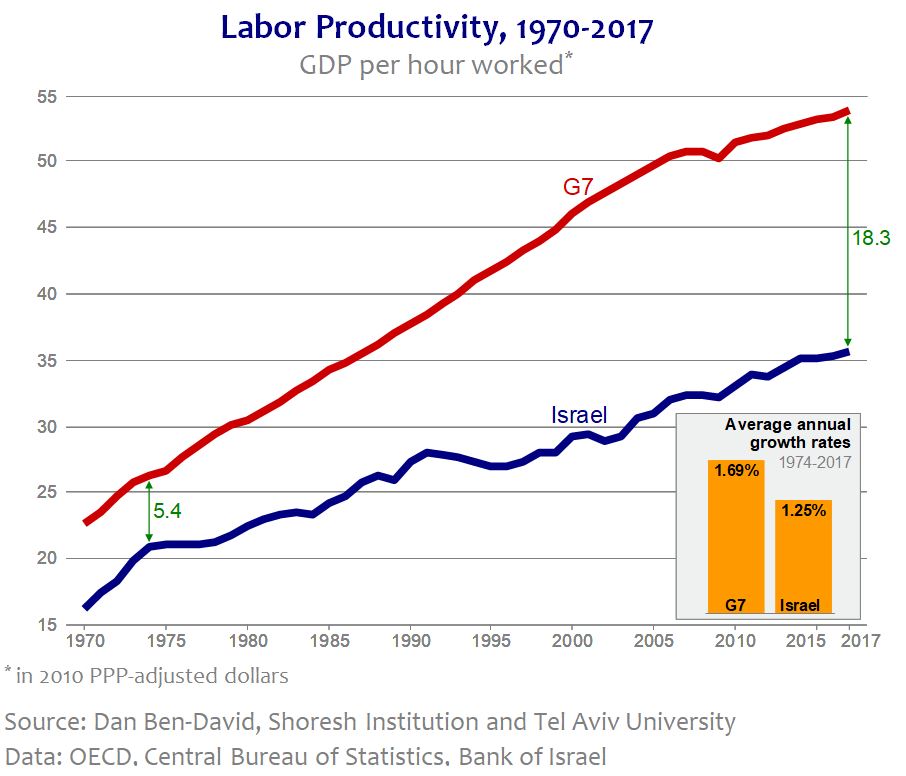Israel’s steady productivity retreat since the 1970s Dan Ben-David Israel’s
labor productivity is not just among the lowest in the developed world. The gap
between the world’s leading countries and Israel has grown steadily – more than
three-fold since the mid-1970s. The average Israeli worker produces $42 an hour
(this does not include the large share of Israelis who do not work). The
average American worker produces nearly three-quarters more. 
Israel
is a tale of two countries in one. One of these, the “Startup Nation”(the
universities, high-tech, etc.), is at the technological cutting edge, and even
pushing it forward. The other Israel, representing a large and growing share of
the population, is receiving neither the tools nor conditions to work in a
globally competitive economy. This
is reflected not only in some of the developed world’s highest rates of poverty
and income inequality, but is a substantial burden on the economic growth of
the entire nation. A rising share of the population lacking the skills to work
in a modern economy is analogous to a national engine running on fewer and
fewer of its existing cylinders, with increasing difficulty in moving the
economy forward. The
larger the gap between the developed world and Israel, the more skilled and
educated Israelis deliberate between leaving or remaining and earning below
their potential, not to mention carrying a progressively heavier burden on
their shoulders. Already in 2017, about half of the population was so poor that
it paid no income tax. More than 90% of income tax revenues came from just 20% of
the population (up from 83% paid by the top two income deciles in 2000). The
low productivity problem emanates from continuing neglect of the country’s
basic infrastructure. For example, congestion on Israel’s roads in 1970 was
identical to the average for small European countries. Since then, road
congestion in Israel has risen steadily, to three times the average of the
small European countries – and this, despite the fact that there are 40% fewer
vehicles per capita in Israel. The
most important infrastructure for the country’s future is its education system.
Israeli young people’s knowledge of basic
subjects (reading, mathematics and science) yields scores on
international exams that are below 24 of the 25 relevant developed world
countries – and this ignominious outcome was attained without even the
inclusion of the ultra-Orthodox children, most of whom do not study a core
curriculum beyond eighth grade and do not participate in the international
exams. The achievements of the non-Haredi Jewish children, some of whom live in
Israel’s geographic and social peripheries, are below the majority of developed
countries while the achievements of Arab-Israeli children are below the
majority of Muslim countries. About
half of Israel’s children are currently receiving a Third |World education, and
they belong to the fastest growing parts of Israeli society. At best, they will
be able to maintain a Third World economy. But a Third World economy cannot
support Israel’s First World defensive needs – with all of the existential
implications that this has on a country situated in the most violent region on
the planet. Since
national security tends to determine Israeli elections, a note to all potential
voters: It’s time to redefine the meaning of national security. |